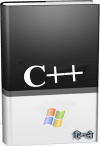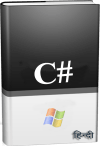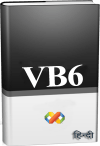Description
यदि आप Python Programming Language का प्रयोग करते हुए Programming करना सीखना चाहते हैं, तो ये पुस्तक आपके लिए काफी उपयोगी साबित हो सकती है, क्योंकि इस पुस्तक में Python Programming से सम्बंधित विभिन्न Core Concepts को विभिन्न प्रकार के Simple Examples द्वारा काफी विस्तार से व काफी सरल भाषा में समझाया है।
इस पुस्तक को आप एक Core Python की EBook भी मान सकते हैं जिसमें Python Programming से सम्बंधित Basics को काफी सरल भाषा में व ढ़ेर सारे Simple Examples का प्रयोग करते हुए काफी विस्तार से समझाया गया है।
Python Programming अपने आप में काफी बड़ा Subject है। इसी वजह से सम्पूर्ण Python Programming को किसी एक Single EBook में समाहित करना Practically Possible नहीं है। लेकिन फिर भी इस पुस्तक में हमने Python Programming से सम्बंधित सभी Important Core Concepts को Best Possible तरीके से Include करने का प्रयास किया है, और हमें पूर्ण विश्वास है कि ये पुस्तक निश्चित रूप से आपके Python Programming के ज्ञान में वृद्धि करेगी। इस EBook में Include किए गए Contents निम्नानुसार हैं:
Index of Contents – Python in Hindi
Python – The Introduction
Advantages of Python
Python is an Scripting Language
Python is High Performing Scripting Language
Python is Multi-Purpose Scripting Language
Python is Developer Friendly Scripting Language
Python is Portable Scripting Language
Python have Large Collection of Supports
Python Supports Multiple Types of Component Integration
Disadvantages of Python
Python Popularity
Where is Used Python?
System Programming
Graphical User Interfaces – GUIs
Internet and Network Programming
Component Integration
Database Programming
Rapid Prototyping
Scientific and Numeric Programming
Designing, Image Processing and Game Programming
Hardware, System and Embedded Programming
Document and Data Processing Programming
Python Features for Developer?
Python is Object Oriented, Procedural and Functional
Free and Open Source
Python is Portable
Python is Powerful
Dynamically Typed
Automatic Dynamic Memory Management
Built-In Support for Large-Scale Application Development
Built-In Data-Structure Object Types
Data-Structure Object Types Built-In Access and Manipulation Support
Standard Core-Libraries Support
Third-Party External Libraries Support
Python is Multi-Language Supported
Python is Easy to Learn and Use
Python v/s Others
Python – Interpreter Internal Working
Python Interpreter
IDLE = Integrated Development and Learning Environment
Python Shell in Command Line
Text Editors
Interactive Prompt and Python Shell
Only Python Commands in Interactive Prompt
No print() Statement in Interactive Prompt
No Indentation in Interactive Prompt or Python Script File
Only One Statement Runs at a Time in Interactive Prompt
Multiline Compound Statements in Interactive Prompt
Linux/Unix Executable Scripts
Modules – The Python Script Files
Importing and Reloading Module
Module Attributes
Modules and Namespaces
Internal Working of Python
Byte Code Compilation
Python Virtual Machine (PVM)
Python Implementation Alternatives
CPython – The Standard
Jython – Python for Java
IronPython – Python for .NET
Stackless – Python for Concurrency
PyPy – Python for Speed
Frozen Binaries – The Python Executable Package
Python – Object Types
Python Program Hierarchy
Benefits of Built-In Types
Core Data Types
Identifiers
Numbers
Python Comment
Python print() Function
Type Conversion or Type Casting
Complex Mathematical Operations
String
Identifier – Variable
Negative Indexing
Slicing
Immutability – Unchangeability
join() Method
bytearray() Function
Type-Specific Methods
Method Chaining in Python
String Formatting
dir() Function
help() Function
String Coding Other Ways
Unicode Supported Strings
Lists
Sequence Operations
Type-Specific Operations
Bound Checking
Nesting
Comprehensions
Dictionaries
Mapping Operations
Nesting
Working with Non-Existing Keys
Sorting the Dictionary
Iteration and Optimization
Tuples
Files
Binary Bytes Files
Unicode Text Files
Other Core Types
Boolean Core Types
Type Testing
User-Defined Data Types or User Defined Class
Everything Else is Related to Program Execution
Python – Numeric Types
Numeric Type Fundamentals
Numerical Literals
Built-In Numerical Tools
Python Expression Operators
Operator Precedence
Automatic Type Conversion – Type Casting
Manual or Explicit Type Conversion – Type Casting
Operator Overloading and Polymorphism
Working with Numbers
Python Variables
Normal Comparison and Chained Comparison
Classic Division and Floor Division
Complex Numbers
Bitwise Operators
Built-In Mathematical Functions
Other Numeric Types
Decimal Type
Fraction Type
Sets
Boolean
Python – Dynamic Typing
Variables, Objects and References
Variable Creation
Variable Types
Use of Variable
Header Fields – Designator and Reference Counter
Shared References
Shared Reference and In-Place Change
Shared Reference and Equality Check
Python – String Fundamentals
Unicode
String Basics
String Literals
Single Quotes and Double Quotes
Escape Sequence Character Constants
Treat Escape Sequence Character as Raw String
Triple Quotes Code Multiline Block Strings
String Actions
Indexing and Slicing
String Conversion
String Methods
Find and Replace
split() Method
String Formatting
String Formatting Expression
String Formatting Method Call
Python – List and Dictionary
Lists
Basic Operations
Common Methods
Dictionaries
Dictionary Use Cases
Python – Tuples and Files
Tuples
Files
Text and Binary Files
Writing and Reading Python Objects
Writing and Reading Native Python Objects Using Pickle
Writing and Reading Python Objects in JSON Format
Python – Assignment Statements
Basic Rules of Creating Python Program
Assignment Statements
Shorthand Assignment Statements
Expression Assignment Statements
Print Statement
Python – Conditional Statements
if, if … else and if … elif … else Statements
Block Statements Delimiters
Truth Values and Boolean Tests
Turnery Expression – The Shorthand of if … else
Python – Looping and Iteration Protocol
while Loop
break, continue, pass and Loop else
for Loop
Nested Loop
Loops and File Handling
Counter Loop
Iteration Protocol
Manual Iterations
List Comprehension
Python – Function Basics
def Statement for Defining Functions
Python Polymorphism
Local Variables and Statement Block
Python Scope Basics
Name Resolution Scheme – The LEGB Rule
Built – In Scope
Global Scope
Minimize Global Variable Names
Minimize Cross-Module Variable Value Modification
Enclosing Scope – Nested Functions
Closures – The Factory Function
Scopes with Lambda Expression
nonlocal Statement
Python – Function Advanced
Shared References, Arguments and Return Values
Arguments Matching and Default Arguments
Keyword-Only Arguments
Recursive Function
Function Object Attributes
Function Object Annotations
lambda Expression – The Anonymous Functions
Functional Programming Tools
Python – Comprehensions and Generations
List Comprehension and Function Tools
List Comprehension and Map
List Comprehension – Testing and Nesting
List Comprehension Syntax
List Comprehensions and Matrixes
Generator Functions and Expressions
Generator Functions
yield vs return Statement
Generator Expressions
Generator Expressions – Iterable and Comprehension
Set and Dictionary Comprehension
Scopes and Comprehension Variables
Comprehending Set and Dictionary Comprehensions
Python – Modules Basics
Why Use Modules?
Code Reuse
System Namespace Partitioning
Implementing Shared Services or Shared Data
Simple Architecture of Python Program
Imports and Attributes
Standard Library Modules
Working of import Statement
Fine the Module to be Loaded
Compile the Module if Not Already Compiled
Run the Loaded Module
Module Search Path of Python
sys.path List
Module File Selection
Import and from Statements
Module Namespaces
Modules Reloading
Python – Module Packages
Package Import
Package Initialization
Module Usability Declaration
Module Namespace Initialization
from … * Statement Behavior
Why Package Import than Module Import
Package Relative Imports
Python 3.3+ Namespace Packages
Module Design Concepts
Data Hiding in Modules
__future__ – Enabling Future Language Features
__name__ and __main__ Usage Modes








Kuldeep Mishra –
Very nice and easy to follow ebook. Even DEMO have approximately more than 50 easy to understand pages to read.